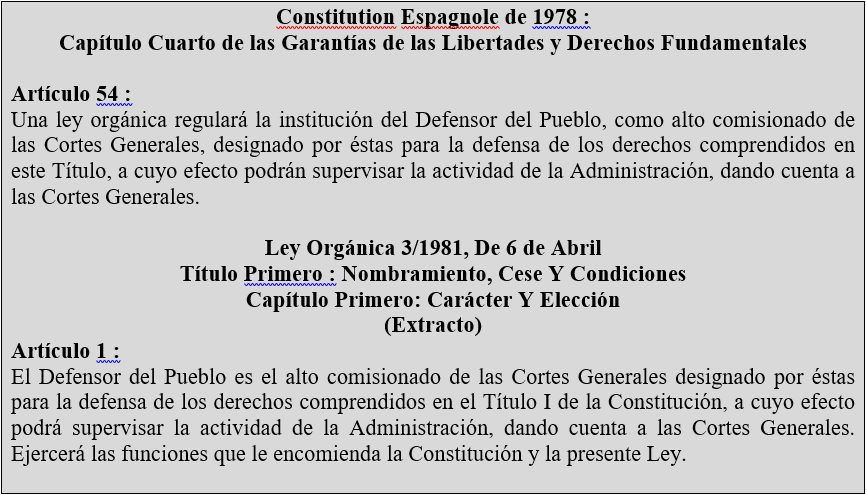Police Ethics Commissioner has been created on September 1st, 1990 and is governed by the Police Act (RLRQ chapter P-13.1).
The police ethics Commissioner receives and examines the complaints filed against police officers, wildlife protection officers, special constables, highway controllers and the Unité permanente anticorruption investigators who may have violated the Code of ethics of Québec police officers.
To be specific, the jurisdiction of the Commissioner applies to Québec police officers performing police duties in another province or territory of Canada and, according to certain modifications, to police officers of other provinces or territories authorized to perform police duties in Québec, in accordance with an authorization granted under the Police Act.
Organisational Structure
A Commissioner and a deputy Commissioner are appointed by the Government for a period of five years. The deputy Commissioner shall exercise the powers delegated to him by the Commissioner. The mandate of the Commissioner and deputy Commissioner may be renewed. In the absence or disability of the Commissioner, he is replaced by the deputy Commissioner.
.
Me Mélanie Hillinger, Commissioner, Lawyer
Hélène Tremblay, Deputy Commissioner, Lawyer
.
In 2021, the police ethics Commissioner had on its payroll, 35 employees, distributed in three geographically decentralized directions in two offices, one in Québec, one in Montréal.
Powers
The Commissioner has a decisive mission within the police ethics system. In fact, after providing assistance to citizens to file their complaint, after a preliminary examination of the complaints, after conciliation has taken place between the parties, after the complainants’ allegations have been investigated, and the evidence is considerate sufficient to cite a police officer before the police ethics Committee, the Commissioner deals with over 90 % of the volume of complaints referred to the ethics system. Moreover, after a citation is issued, the Commissioner makes representations before the police ethics Committee, and if an appeal is filed, before the Court of Québec.
.
However, the Commissioner may not submit the case on his own. The Commissioner can only act when there is:
• a complaint from a person;
• a request for investigation from the Minister of Public Security;
• a final decision from a Canadian court declaring a police officer guilty of a criminal offence which also constitutes a breach of the Code of ethics
.
The decisions of the Commissioner to close a file are rendered in writing, with reasons, at the complainant’s request, and subject to a review procedure that is either internal (the Commissioner himself) or external (the police ethics Committee), according to the stage of the decision.
.
Moreover, the Commissioner can make recommendations to remedy any detrimental situation observed or prevent its reoccurrence, and formulate observations to improve the conduct of a police officer, wildlife protection officer, special constable, highway controller or Unité permanente anticorruption investigator.
.
Furthermore, if a criminal offence appears to have been committed, the Commissioner can refer the case to the appropriate police force for a criminal investigation. Finally, when the ethics investigation has been completed, the Commissioner can also forward his file to the Director of Criminal and Penal Prosecutions.
Number of complaints received in 2020-2021
The Police Ethics Commissioner Office has received 2407 complaints during the last fiscal exercise.
Contact
Website : https://deontologie-policiere.gouv.qc.ca/comissaire.html
File a complaint : https://deontologie-policiere.gouv.qc.ca/en/le-commissaire/nos-services/deposer-une-plainte.html
Email : deontologie-policiere.quebec@msp.gouv.qc.ca



